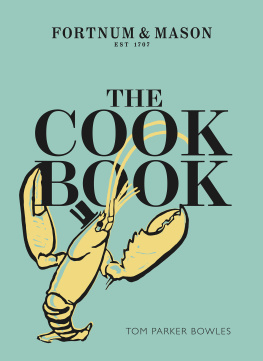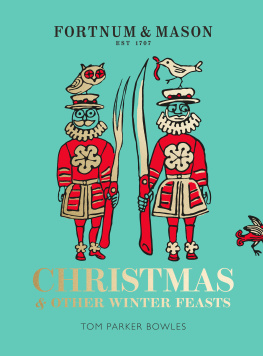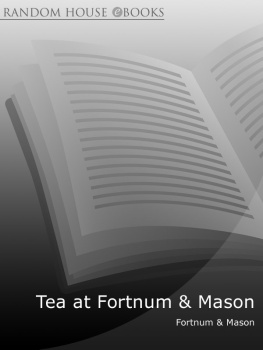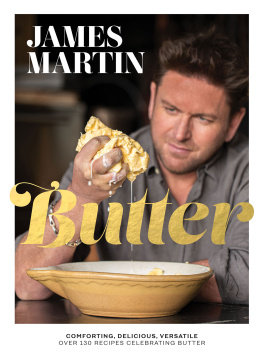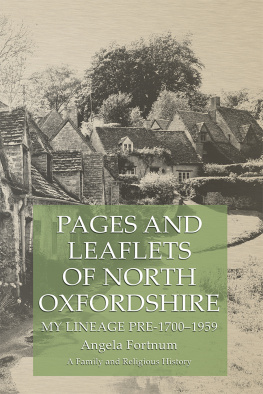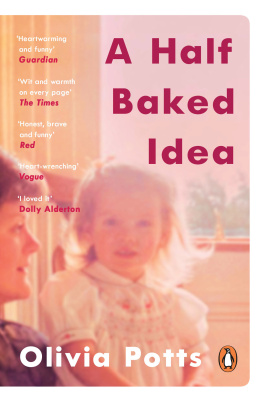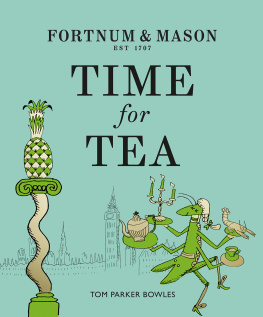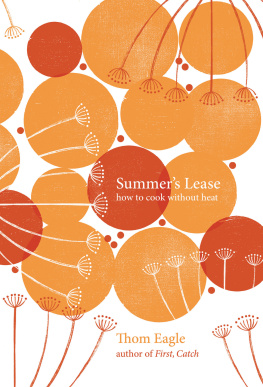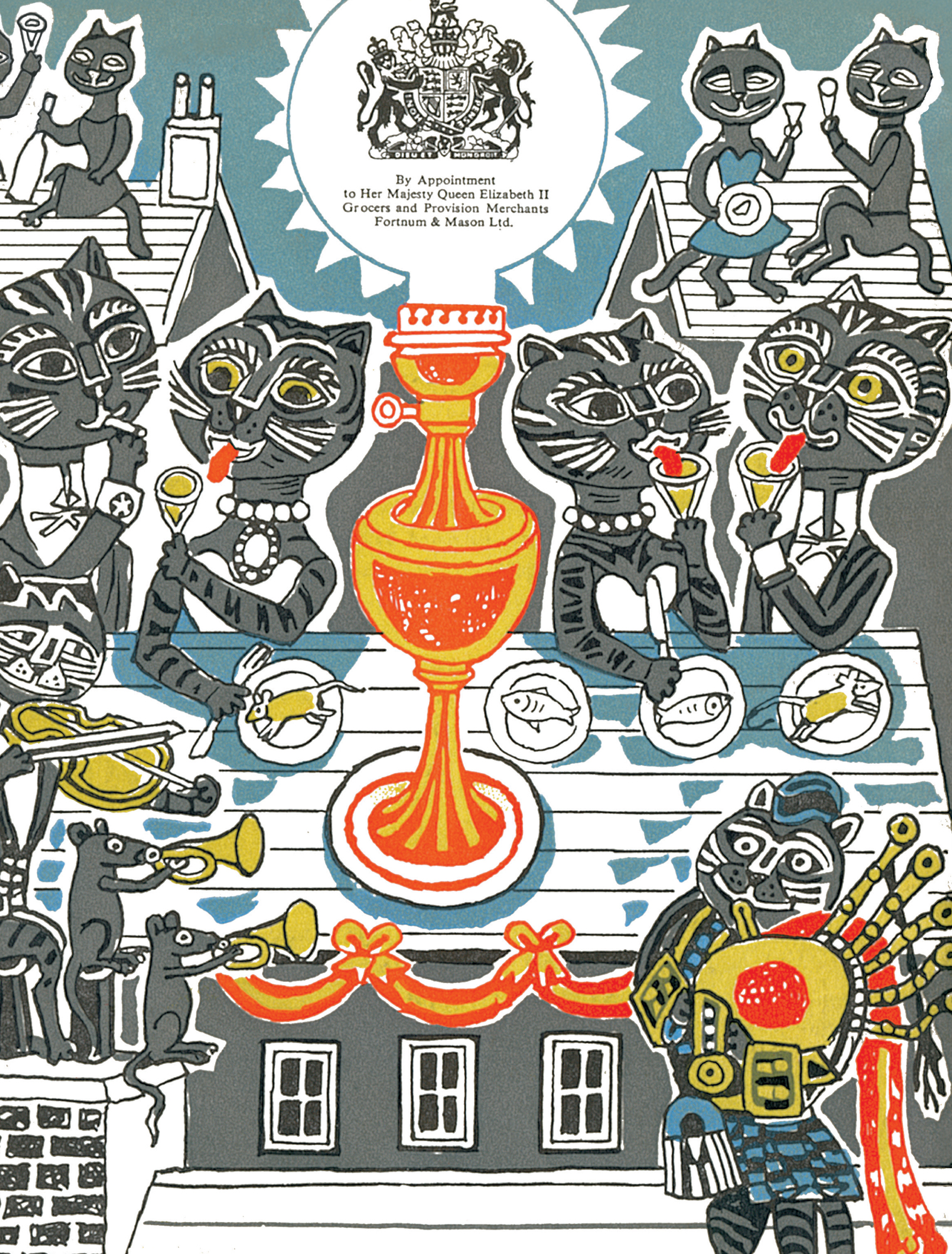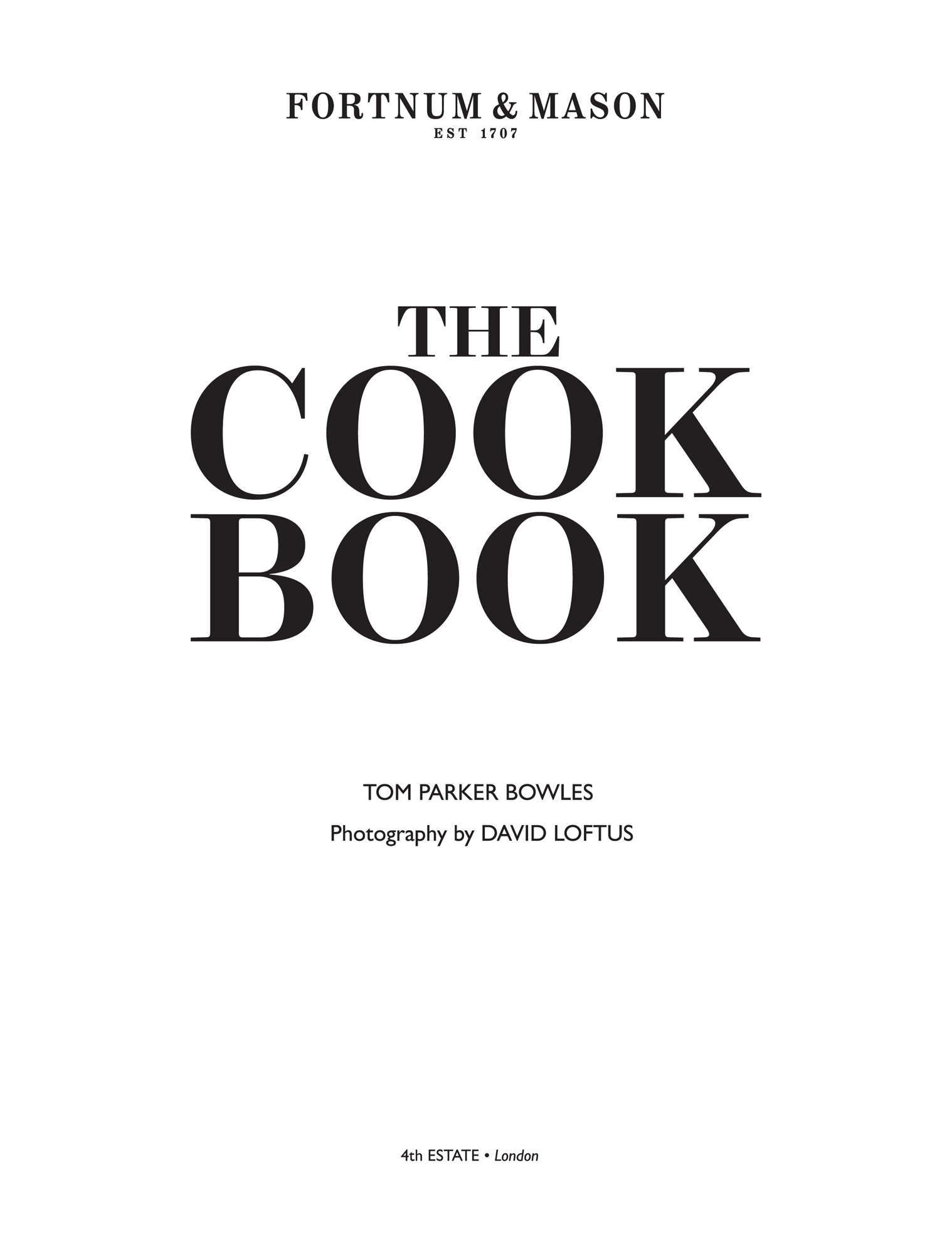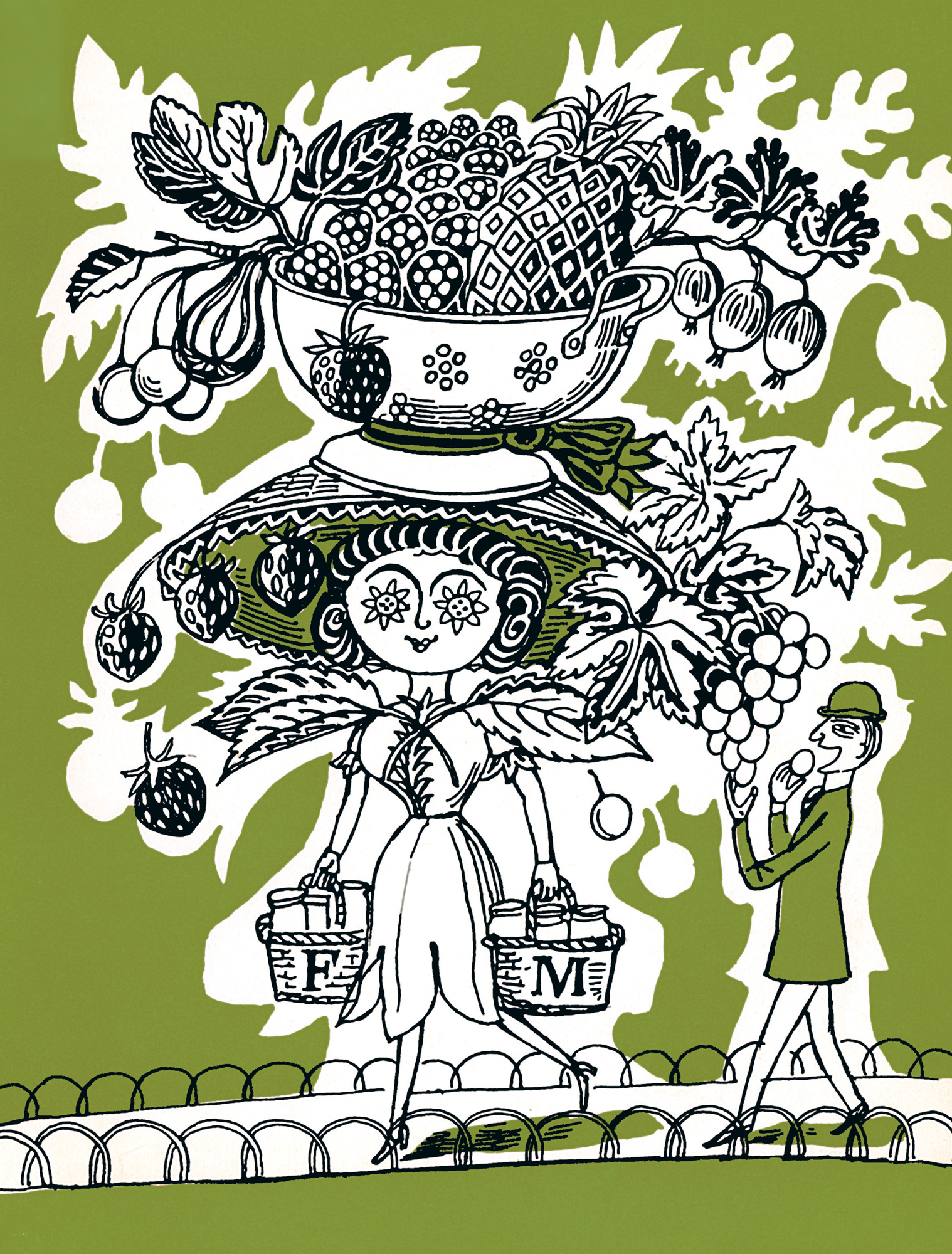4th Estate
An imprint of HarperCollinsPublishers
1 London Bridge Street
London SE1 9GF
www.4thEstate.co.uk
First published in Great Britain by 4th Estate in 2016
Copyright Fortnum & Mason Plc 2016
All photographs David Loftus 2016
Much of the photography in this book was shot on location at 181 Piccadilly behind a shop hoarding on the third floor.
Fortnum & Mason Plc asserts the moral right to be identified as the author of this work.
Design by BLOK
www.blokdesign.co.uk
A catalogue record for this book is available from the British Library.
All rights reserved under International and Pan-American Copyright Conventions. By payment of the required fees, you have been granted the non-exclusive, non-transferable right to access and read the text of this e-book on-screen. No part of this text may be reproduced, transmitted, down-loaded, decompiled, reverse engineered, or stored in or introduced into any information storage and retrieval system, in any form or by any means, whether electronic or mechanical, now known or hereinafter invented, without the express written permission of HarperCollins.
Source ISBN: 9780008199364
Ebook Edition October 2016 ISBN: 9780008199401
Version: 2016-09-26
Dedicated to William Fortnum and Hugh Mason
Contents
Where the food is just about as good as food can be
They say you never forget your first time. And when it comes to Fortnum & Mason, theyd be right. It was a chill winters evening, in the early days of the 80s, and I was dressed in my London best shiny Clarks sandals, pressed corduroy trousers and an unusually spotless shirt. My tattered Husky had been replaced with a dark blue overcoat, and as my cousin and I walked down Piccadilly with my grandmother, I shivered with a mixture of cold, and pure, unalloyed excitement. We were up to see the Christmas windows. And maybe if we were very good and said our pleases and thank yous and didnt moan or fidget or fiddle about maybe we could have a banana split at the legendary Fountain.
Having grown up in the depths of Wiltshire, I thought of London as a glittering Emerald City, impossibly exotic, endlessly exciting. And the Italian restaurants, Mimmos and La Fontana, that my grandmother loved so much were pure bliss. We would suck down endless Coca-Colas, fight with breadstick swords, devour vast bowls of spaghetti Bolognese, and have our cheeks pinched until they glowed. We didnt go out to restaurants in the country. In fact, I dont think Chippenham had any, save the ubiquitous chippy.
London was thrilling, no doubt about that. And Fortnum & Mason was the very pinnacle of big-city glamour. Those spectacular windows, warm and lavish, with the ornate tins of tea and exotic sweets and glittering bottles filled with magic potions. And the clock, where, on the hour, two wooden men emerged, one with a tea tray, the other with a candelabra, faced each other, and bowed graciously.
Of course, I had little idea that these four-foot figures were Mr Fortnum and Mr Mason and that the clock, unveiled in 1964, had taken three years to build. For me, it was utterly magical, more Narnia than Piccadilly, with all the fur wraps and fake snow and sugar-dusted Turkish delight that came with it. Although, unlike Narnia, there was no doubt it was Christmas. Hark the Herald Angels trilled from some hidden speaker, and the place was laden with candied fruits, gleaming decorations and vast, extravagant crackers. The White Witch would not have approved.
There was a smell of spice and tea and expensive eaux de toilette. We fought our way through the festive hordes, past the tailcoated staff (more soldiers than shop assistants) and found ourselves in the Fountain, where that banana split, with its lashings of cream and fruit and chocolate and ice cream, seemed impossibly big. It was lust at first sight. As it had been for my mother and father, and for generations of excitable, star-struck children.
Because Fortnum & Mason is so much more than a mere shop. Its a national icon, a British institution, the finest grocer of them all. For this is a store that has fuelled the furnaces of British history, helped build empires, and fed the appetites of kings and queens, maharajahs and tsars, emperors, dukes and divas alike.
To read through a list of Fortnums clients is to wander through our island story, a definitive Whos Who of the grand, gilded and great. Every British monarch since Anne, the last reigning Stuart queen. Prime ministers from Gladstone and Disraeli onwards. The most brilliant of war leaders, Wellington, Churchill and Montgomery. Actors from Sir John Gielgud to Sir Michael Caine. Plus some of the greatest writers ever to put pen to paper: Byron, Dickens, James, Conrad, Wodehouse, Betjeman and Waugh. All came for their hampers, griottes, Scotch eggs, smoked salmon, claret and tea. All united in their love for this legendary store.
Fortnums is a company built upon spent wax. Literally. A seemingly malleable base for such an august London store. William Fortnum was a footman to Queen Anne. And one of the perks of his job was being allowed to keep the spent candles. The Royal Family insisted on new ones each night, which meant a lot of spare wax. Wax that he sold on for a decent profit. But it wasnt just the candles that kept Fortnums coffers flowing. He also had a grocery sideline. And in 1707 he convinced his landlord, Hugh Mason, to go into business with him. So Fortnum met Mason. And they built their grocery as near as possible to the royal palace. Then, as now, St Jamess was the very centre of upscale, old-school society.
As Fortnum & Mason grew (helped by Fortnums grandson, Charles, going into the household of Queen Charlotte, the wife of George III), so too did the British Empire. Wars raged, the map became steadily more pink, and the fortunes of Fortnums grew. They supplied tea, wine and ale to the officers of Waterloo and Trafalgar alike. Queen Victoria sent out huge shipments of their famed beef tea to feed her armies during the Crimean War. And Robert Graves writes of Fortnums hampers, filled with potted beef, Stilton and proper tea, arriving weekly in the World War I trenches. Winston Churchill was just one of many grateful recipients.
Yet Fortnum & Mason has never been content to live in the past. To respect it, sure, but never to become trapped in its amber grip. To stay still is to stagnate. Theyve always been innovators, from hampers and Scotch eggs to having their own beehives on the roof. With the Food and Drink Awards, they continually inspire (and reward) excellence in British food writing. And in 45 Jermyn St. they have a thoroughly modern restaurant that still values old-fashioned delight. Comfort, quality, the joys of a civilised long lunch.
This is the first official Fortnum & Mason cook book in over 300 years, the recipes a fusion of the classic and modern. But it is no mere coffee-table tome, destined to look good but gather dust this is a book that should become splattered and worn with constant use, to be bent, bruised and loved. Like Fortnum & Mason itself, it aims to be timeless and practical, offering a taste of Britain with a resolutely global appetite. A keeper of British tradition and a curator of the worlds greatest ingredients. The recipes, though, are all united by two things their connection with Fortnum & Mason, and the fact that they taste damned fine too. So heres to the Grande Dame of Piccadilly. To good food, and cooking. And to the next 300 years.

